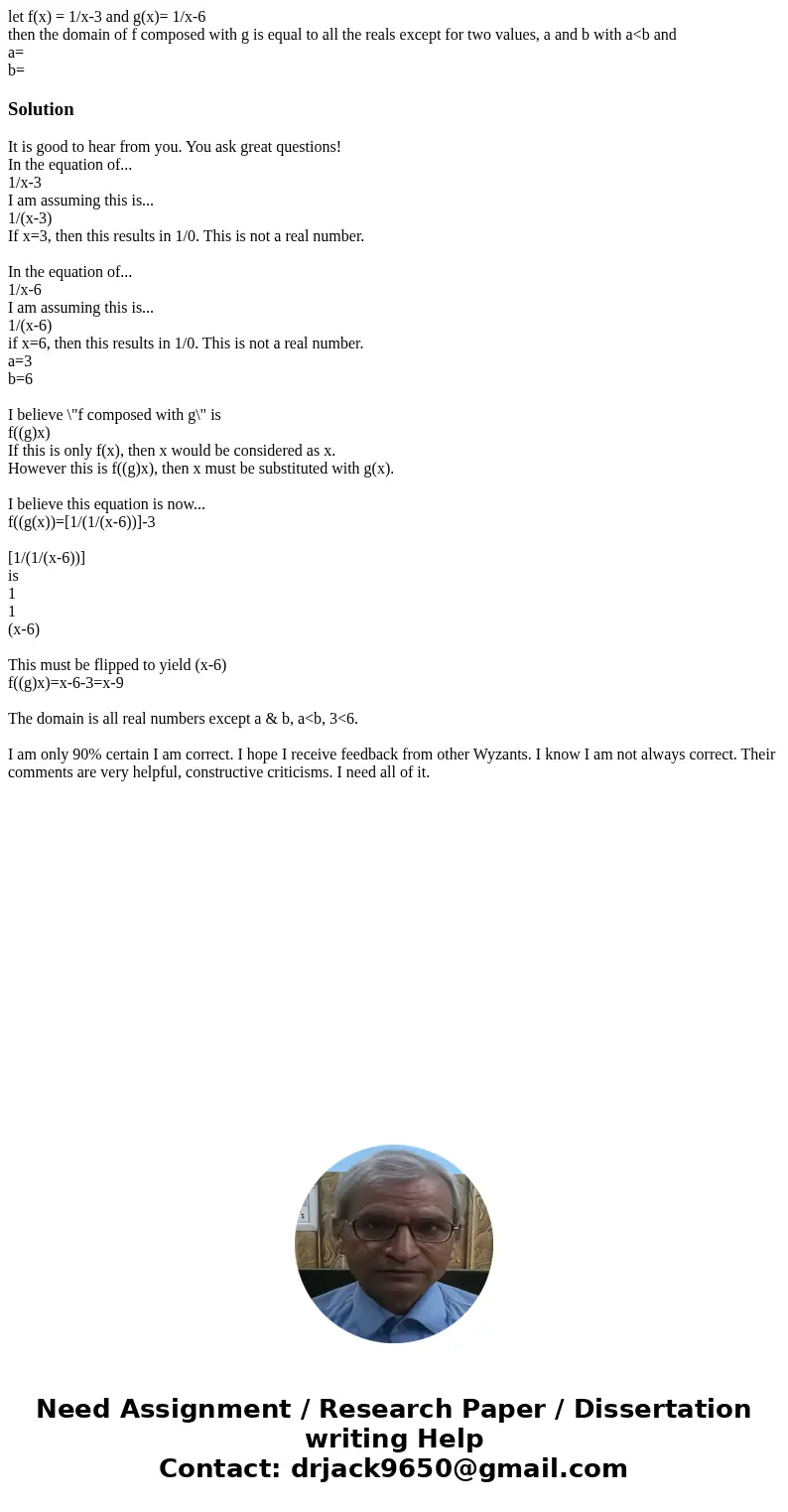let fx 1x3 and gx 1x6 then the domain of f composed with g
let f(x) = 1/x-3 and g(x)= 1/x-6
then the domain of f composed with g is equal to all the reals except for two values, a and b with a<b and
a=
b=
Solution
It is good to hear from you. You ask great questions!
In the equation of...
1/x-3
I am assuming this is...
1/(x-3)
If x=3, then this results in 1/0. This is not a real number.
In the equation of...
1/x-6
I am assuming this is...
1/(x-6)
if x=6, then this results in 1/0. This is not a real number.
a=3
b=6
I believe \"f composed with g\" is
f((g)x)
If this is only f(x), then x would be considered as x.
However this is f((g)x), then x must be substituted with g(x).
I believe this equation is now...
f((g(x))=[1/(1/(x-6))]-3
[1/(1/(x-6))]
is
1
1
(x-6)
This must be flipped to yield (x-6)
f((g)x)=x-6-3=x-9
The domain is all real numbers except a & b, a<b, 3<6.
I am only 90% certain I am correct. I hope I receive feedback from other Wyzants. I know I am not always correct. Their comments are very helpful, constructive criticisms. I need all of it.

 Homework Sourse
Homework Sourse